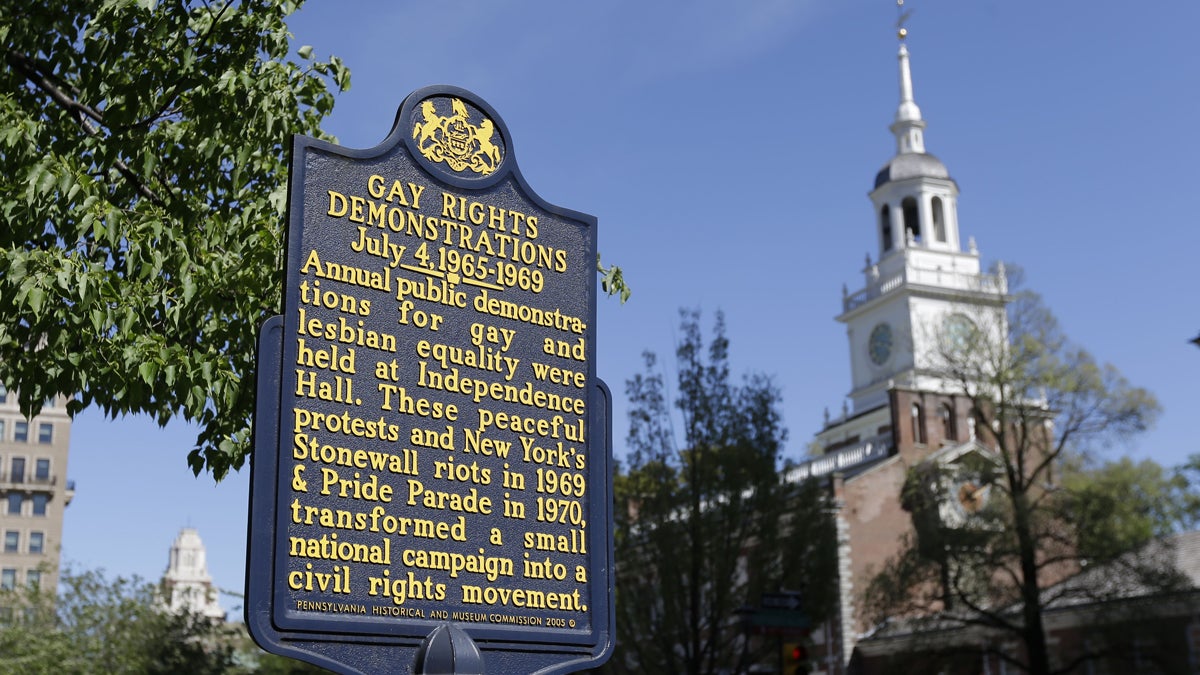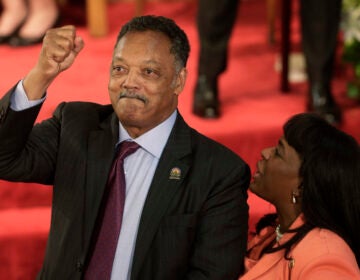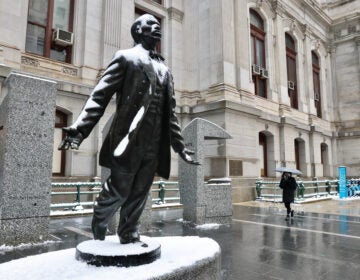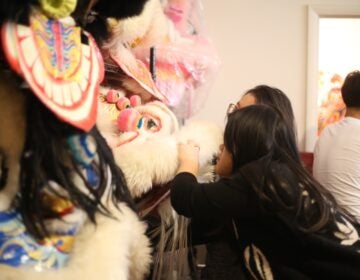Modern progressive LGBT politics has roots in Revolutionary religion

A historical marker commemorates public demonstrations for gay and lesbian equality in view of Independence Hall in Philadelphia. (AP Photo/Matt Rourke)
The stories we tell about life are never static. Research and experience show us that telling our stories changes us. Each telling is a dipstick into our growing understanding of ourselves and of the life around us.
Working in a place with a historical footprint as large as that of Christ Church Philadelphia, I love wandering into the church or burial ground to hear the stories of the tour guides. Really, they’re historians, and they have a way of making famous and not-so-famous people from our past come alive in new ways that resonate with the tourists they’re talking to at any given moment.
For instance, a few years ago, the church undertook to tell the stories of African Americans connected to the historic congregation, including that of a woman named Alice, who was one of the first members of the church founded in 1695 and who left us with the only description of the original structure that stood on that site. The stories also included those famous founders who had dealt in the slave trade.
So I was interested to learn about another historical dipstick that was turning up fresh stories: a tour, to debut on July 2 during the Equality Forum celebrations, looking at how the principles of the famous founders associated with the church lead to progressive voices such as those of the LGBT community.
A history of religious progressives
The tour is primarily the work of John Bright, a Ph.D. student in religion at Temple University and an employee of the Christ Church Preservation Trust. Intrigued, I wanted to hear more about how this intersection of personal story and work played out for him.
“[Christ Church] isn’t just historical, it’s revolutionary,” Bright says. “If that weren’t true, the church wouldn’t be famous. People don’t remember the loyalists or moderates; they remember the revolutionaries.”
But it’s the number of revolutionaries associated with the church that makes it an especially good laboratory. “Christ Church is a unique social location in the Revolutionary era,” Bright says. “There’s no other private institution to which more founders can be connected than this one. The fact that that private institution is a church makes this a perfect place to ask questions about the religious beliefs and practices of the founders. What you see here is reflective of a higher percentage of them than you’d see anywhere else.”
Yet the point isn’t just what the founders thought, but rather the longer-term trajectory that their thinking set up. Bright isn’t trying to say what the founders would think of current issues — because that’s just not possible. “The issue,” he says, “is to look at what they did in the context of their time and how the seeds they planted here grew — and into what.”
Which brings us to the religious issues of the present, such as those around the LGBT community. Bright’s tour examines the broad perception that, if the founders were alive today, they would be religiously and politically conservative by today’s standards.
“That’s simply not historically accurate,” he says. “In this church, the founders injected democracy not only into the secular government but the government of the church in general, because the movement toward democracy in religion, although seen clearly in the construction of the Episcopal Church [of which Christ Church is the founding parish], also had impact in other religious traditions in the U.S.”
Here’s where the radical nature of the founders’ vision starts to become less hidden in the haze of history and more exciting as something open-ended and unresolved in its day. “When today’s religious conservatives say these people were like us because they had these orthodox religious views, they’re not describing the relevant pieces of their own traditions that lead to what conservatism is today,” Bright says. “For instance, biblical inerrancy and fundamentalism both greatly postdate the Revolutionary era and come from different streams than this church.”
Bright says the founders’ radicalism actually points toward more progressive social perspectives. The Equality Forum’s interfaith service, to be held at 4 p.m. on Friday, July 3, at Christ Church, will make that connection clear. The service will include Bishop Gene Robinson, the first openly gay bishop to be ordained in the Episcopal Church. The founders’ radical social steps, Bright says, led to this: “The direct historical line is from the founders to Gene Robinson.”
A fuller understanding of ‘Christian’
It’s certainly an intriguing example of “humans at work” over the centuries. But I was also curious about this particular human and what had motivated him to do the tour this year. On one level, it was practical.
“The dissertation I hope to write is about how you can see the line from this church’s history to religious progressives,” Bright says. “It’s perfect practice for the more detailed writing I anticipate doing in the near future.”
But as with any such intentional grappling with stories that have risen to the level of currency, the motivation is also personal — and loving. Bright says that growing up in a religiously and politically conservative environment made it very traumatic for him to come out as gay. “But when I did,” he says, “I didn’t move away from being a Christian. I became a Christian more fully and genuinely. Because of my experiences, I’m sensitive to how the word ‘Christian’ is understood. So someone might hear the word and associate it with close-mindedness. I understand where that reaction comes from.”
That seemed a disarming and non-judgmental point of connection with people who carry the perception of Christianity as mainly socially conservative. Yet Bright also went on to invert the commonplace distinction of “spiritual but not religious.”
“This also speaks to those who can’t believe a gay person is also a committed Christian,” he says. “I’ve become a more spiritual person as a result of coming out and being honest with myself and others, more than I had the capacity to be before, because you can’t engage in a real spiritual reflection if you can’t look at yourself honestly. As internal experience, I’m more at peace, and I feel much more connected to God than, by far, I ever did when I was limiting myself to insisting on believing things that aren’t true anyway.”
That knocked me out as one of the most raw and genuine insights about the spiritual journey I’d heard in a long time. As a human at work, Bright was bringing his personal and sometimes painful experiences and sharp intellect to bear on a transformed story — and, one hopes, a story that’s freeing for others. It hearkens to the great spiritual writer Henri Nouwen’s description of a wounded healer, and such stuff is the nugget of the spiritual life.
And it’s also vulnerable stuff — and creating a successful tour is even more ‘human at work.’
“Being understood takes work,” Bright says. “You have to fit into 45 minutes really sophisticated ideas that people could misunderstand. I recognize that people may leave with questions. I’m interested in continuing to engage on this topic — like in my dissertation. I’m extremely interested in conversation.”
And where does he think this phase of the conversation will go? “It’ll start on July 2,” he says. And where it goes from there, who knows?”
WHYY is your source for fact-based, in-depth journalism and information. As a nonprofit organization, we rely on financial support from readers like you. Please give today.




